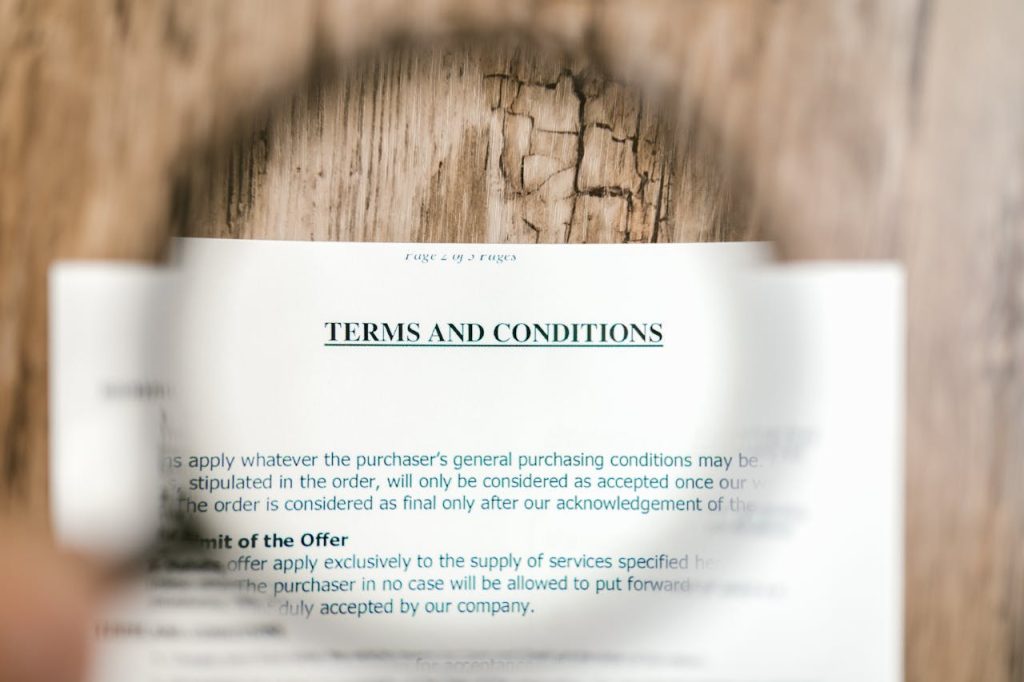
Have you ever scrolled to the bottom of a long wall of text, clicked “I agree,” and moved on with your day? You’re not alone. Most people breeze past consumer terms and conditions, assuming they’re just standard legalese. But buried in those dense paragraphs are warnings and clauses that can impact your wallet, your privacy, and even your legal rights. Understanding what’s hidden in these agreements isn’t just for lawyers—it’s essential for anyone who shops online, signs up for services, or downloads apps. Failing to consider these details can result in unexpected fees, lost rights, or even identity theft. Let’s break down the most common warnings hidden in consumer terms and conditions and how you can protect yourself.
1. Automatic Renewals and Subscriptions
Many services, from streaming platforms to gym memberships, include automatic renewal clauses in their terms and conditions. This means your subscription will continue—and your card will be charged—unless you cancel it actively. These clauses are often tucked away in fine print, making it easy to forget about them until you see an unexpected charge on your statement. Always look for language about “auto-renewal” or “recurring billing” before you agree. Set reminders to review your subscriptions regularly, and know how to cancel before the next billing cycle.
2. Mandatory Arbitration Clauses
A growing number of companies include mandatory arbitration clauses in their consumer terms and conditions. These clauses require you to resolve disputes through private arbitration rather than in court. While arbitration can be faster, it often favors the company and limits your ability to join class-action lawsuits. If you see language about “waiving your right to a jury trial” or “binding arbitration,” know that you’re giving up significant legal protections. Some companies allow you to opt out of arbitration within a specific period—read carefully and act quickly if you want to retain your rights.
3. Data Collection and Sharing
Consumer terms and conditions often spell out how your personal data will be collected, used, and shared. Many companies reserve the right to track your activity, sell your information to third parties, or use your data for targeted advertising. This can lead to privacy concerns and unwanted marketing. Look for sections labeled “Privacy Policy” or “Data Use.” If you’re uncomfortable with how your data is handled, consider using alternative services or adjusting your privacy settings.
4. Unilateral Changes to Terms
Some companies include clauses that allow them to change their terms and conditions at any time, often without direct notice to you. This means the agreement you sign today could look very different tomorrow. These “unilateral modification” clauses can introduce new fees, restrictions, or obligations. Always check for language about how and when terms can be updated. Consider setting up alerts or regularly reviewing the terms to stay informed about any changes that may affect you.
5. Limitations of Liability
Buried in the fine print, you’ll often find clauses that limit the company’s liability for damages, even if their product or service fails. These sections might state that the company isn’t responsible for indirect, incidental, or consequential damages. In practice, this means you could be left with little recourse if something goes wrong. Before agreeing, look for phrases like “limitation of liability” or “as is.” If you’re making a significant purchase or sharing sensitive information, weigh the risks carefully.
6. Restrictions on Returns and Refunds
Return and refund policies are often detailed in the terms and conditions, and they’re not always as generous as you might expect. Some companies impose strict time limits, restocking fees, or require items to be unopened. Others may not offer refunds at all for certain products or services. Always review the return policy before making a purchase, especially for big-ticket items or digital goods. Knowing the rules upfront can save you frustration and money down the line.
7. Intellectual Property Rights
When you use a service or upload content, you might be granting the company broad rights to use, modify, or distribute your work. These intellectual property clauses can affect everything from your social media posts to photos you upload to cloud storage. If you value your creative work, read these sections closely. Some agreements even allow companies to use your content in advertising without additional permission or compensation.
8. Geographic and Jurisdictional Restrictions
Some terms and conditions specify where disputes must be resolved, or which country’s laws apply. This can be a major hurdle if you need to take legal action, especially with international companies. Look for “governing law” or “jurisdiction” clauses. If you’re dealing with a company based overseas, understand that your consumer protections may be limited.
Protecting Yourself: Read, Question, and Act
The next time you’re faced with a lengthy set of consumer terms and conditions, don’t just scroll and click. Take a few minutes to scan for the key warnings: automatic renewals, arbitration clauses, data collection, and liability limitations. If something doesn’t sit right, ask questions or look for alternatives. Your time and attention now can save you money, protect your privacy, and preserve your rights in the future.
Have you ever been caught off guard by something hidden in the fine print? Share your story or tips in the comments below!
Read More
The Definition of Irony, or Why You Should Know What You’re Doing
Stop Reading About Last Year’s Top Ten Mutual Funds
The post Warnings Hidden in Consumer Terms and Conditions appeared first on The Free Financial Advisor.







